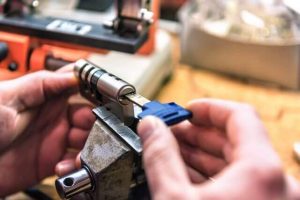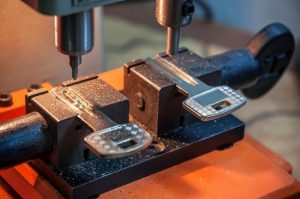Common Types of Hardware That Locksmiths Use
While no one is asking you to become an expert locksmith overnight, it can still be useful to understand the basics of what we offer at Capital Locksmith. Our experienced professionals offer a wide range of services for both commercial and residential settings. From replacing your locks, to getting you back in after you are locked out, there are a number of different features we bring to the table. It is important to make sure one chooses the very best, when it comes to residential/commercial locksmith services. You want experience, and you want a company that will put your needs first.
To be sure, you also want to make sure you are trusting things to a company that will bring the best hardware our industry has to offer. You certainly don’t have to worry about that with Capital Locksmith. Let’s take a look at some of the major tools and other hardware you can expect to find through our company.
 With tools such as the ones mentioned above, you can easily imagine locksmiths being able to work in a wide range of situations. If you want to replace your locks, get into your home or business after being locked out, or add deeper security measures to your home, a locksmith can be there to help.
It is important to make sure you are trusting this sort of work to the very best. You want a company that offers experience and professionalism in equal amounts. Certainly, you want someone who will bring the tools and hardware that we’ve covered here today. If you have any questions about the process in question, and the tools that are going to be used, don’t hesitate to ask.
At Capital Locksmith, we are only too happy to answer any questions you may have. It’s important to us that you have complete confidence in whatever we are planning to do. While we will give you a detailed understanding of everything we are going to do, we also want you to remember that you are more than welcome to ask us anything that might be on your mind.
Now, more than ever, locksmiths have incredible technology and tools to help them in their profession. This is particularly true when you consider the various ways in which locksmiths can now repair and install locks on our vehicles, homes, and commercial spaces.
Even so, it isn’t enough for a locksmith to have the best tools in the industry. You also want to make sure you are working with someone who is going to bring experience to the task at hand. That is where Capital Locksmith comes into play. Our experienced professionals offer a wide range of services for both commercial and residential settings. From replacing your locks, to getting back in after you are locked out, there are a number of different features we bring to the table.
It is important to make sure one chooses the very best, when it comes to choosing residential/commercial locksmith services. You want experience, and you want a company that will put the very best on your needs.
Let’s take a look at some of the major tools and other hardware you can expect to find through our company. We can also tell you why it’s always a good idea to make sure you’re choosing the best locksmith company available.
With tools such as the ones mentioned above, you can easily imagine locksmiths being able to work in a wide range of situations. If you want to replace your locks, get into your home or business after being locked out, or add deeper security measures to your home, a locksmith can be there to help.
It is important to make sure you are trusting this sort of work to the very best. You want a company that offers experience and professionalism in equal amounts. Certainly, you want someone who will bring the tools and hardware that we’ve covered here today. If you have any questions about the process in question, and the tools that are going to be used, don’t hesitate to ask.
At Capital Locksmith, we are only too happy to answer any questions you may have. It’s important to us that you have complete confidence in whatever we are planning to do. While we will give you a detailed understanding of everything we are going to do, we also want you to remember that you are more than welcome to ask us anything that might be on your mind.
Now, more than ever, locksmiths have incredible technology and tools to help them in their profession. This is particularly true when you consider the various ways in which locksmiths can now repair and install locks on our vehicles, homes, and commercial spaces.
Even so, it isn’t enough for a locksmith to have the best tools in the industry. You also want to make sure you are working with someone who is going to bring experience to the task at hand. That is where Capital Locksmith comes into play. Our experienced professionals offer a wide range of services for both commercial and residential settings. From replacing your locks, to getting back in after you are locked out, there are a number of different features we bring to the table.
It is important to make sure one chooses the very best, when it comes to choosing residential/commercial locksmith services. You want experience, and you want a company that will put the very best on your needs.
Let’s take a look at some of the major tools and other hardware you can expect to find through our company. We can also tell you why it’s always a good idea to make sure you’re choosing the best locksmith company available.
Common Locksmith Hardware
Lockouts, broken keys, and replacement work are among the most common locksmith tasks. Regardless of what you are looking for in your locksmith, you are likely to see them bring some, if not all of the following tools: Hook pick: This is one of the most common locksmith tools. Also known as a feeler, the hook pick is designed to help the locksmith pick a lock when needed. These come in various sizes.
Hook pick: This is one of the most common locksmith tools. Also known as a feeler, the hook pick is designed to help the locksmith pick a lock when needed. These come in various sizes.- Slim Jim: Some locksmiths refer to this as a slim shim. Regardless of what you call it, you are talking about a tool that gives locksmiths the ability to get into most cars.
- Key duplicator machinery: Complex and custom-built, this machinery is an invaluable tool for locksmiths on the job. The ability to make a key is absolutely vital, and a locksmith will use this machinery to recreate a lock for a car or home in moments.
- Jackknife picks: This small tool will feature around four or five picks. Locksmiths use this tool for a wide range of household locks.
- Bolt cutters: If your lock has become jammed, the last thing in the world you want to do is panic. Accessing padlocks or chains can also fall to the responsibility of a locksmith, which is where you’ll want to keep this tool in mind.
- Torsion wrench: A torsion wrench is a crucial tool to help locksmiths pick a lock successfully. Once all of the pins have been lifted from a lock, the torsion wrench will be there to make sure they remain in place. Torsion wrenches are also important for those situations in which the lock needs to be completely opened.
- Bump keys: The bump key isn’t the same as a skeleton key. While a bump key can be used to deal with most simple locks, the skeleton key is used to open most warded locks.
Why You Need a Locksmith
 With tools such as the ones mentioned above, you can easily imagine locksmiths being able to work in a wide range of situations. If you want to replace your locks, get into your home or business after being locked out, or add deeper security measures to your home, a locksmith can be there to help.
It is important to make sure you are trusting this sort of work to the very best. You want a company that offers experience and professionalism in equal amounts. Certainly, you want someone who will bring the tools and hardware that we’ve covered here today. If you have any questions about the process in question, and the tools that are going to be used, don’t hesitate to ask.
At Capital Locksmith, we are only too happy to answer any questions you may have. It’s important to us that you have complete confidence in whatever we are planning to do. While we will give you a detailed understanding of everything we are going to do, we also want you to remember that you are more than welcome to ask us anything that might be on your mind.
Now, more than ever, locksmiths have incredible technology and tools to help them in their profession. This is particularly true when you consider the various ways in which locksmiths can now repair and install locks on our vehicles, homes, and commercial spaces.
Even so, it isn’t enough for a locksmith to have the best tools in the industry. You also want to make sure you are working with someone who is going to bring experience to the task at hand. That is where Capital Locksmith comes into play. Our experienced professionals offer a wide range of services for both commercial and residential settings. From replacing your locks, to getting back in after you are locked out, there are a number of different features we bring to the table.
It is important to make sure one chooses the very best, when it comes to choosing residential/commercial locksmith services. You want experience, and you want a company that will put the very best on your needs.
Let’s take a look at some of the major tools and other hardware you can expect to find through our company. We can also tell you why it’s always a good idea to make sure you’re choosing the best locksmith company available.
With tools such as the ones mentioned above, you can easily imagine locksmiths being able to work in a wide range of situations. If you want to replace your locks, get into your home or business after being locked out, or add deeper security measures to your home, a locksmith can be there to help.
It is important to make sure you are trusting this sort of work to the very best. You want a company that offers experience and professionalism in equal amounts. Certainly, you want someone who will bring the tools and hardware that we’ve covered here today. If you have any questions about the process in question, and the tools that are going to be used, don’t hesitate to ask.
At Capital Locksmith, we are only too happy to answer any questions you may have. It’s important to us that you have complete confidence in whatever we are planning to do. While we will give you a detailed understanding of everything we are going to do, we also want you to remember that you are more than welcome to ask us anything that might be on your mind.
Now, more than ever, locksmiths have incredible technology and tools to help them in their profession. This is particularly true when you consider the various ways in which locksmiths can now repair and install locks on our vehicles, homes, and commercial spaces.
Even so, it isn’t enough for a locksmith to have the best tools in the industry. You also want to make sure you are working with someone who is going to bring experience to the task at hand. That is where Capital Locksmith comes into play. Our experienced professionals offer a wide range of services for both commercial and residential settings. From replacing your locks, to getting back in after you are locked out, there are a number of different features we bring to the table.
It is important to make sure one chooses the very best, when it comes to choosing residential/commercial locksmith services. You want experience, and you want a company that will put the very best on your needs.
Let’s take a look at some of the major tools and other hardware you can expect to find through our company. We can also tell you why it’s always a good idea to make sure you’re choosing the best locksmith company available. 